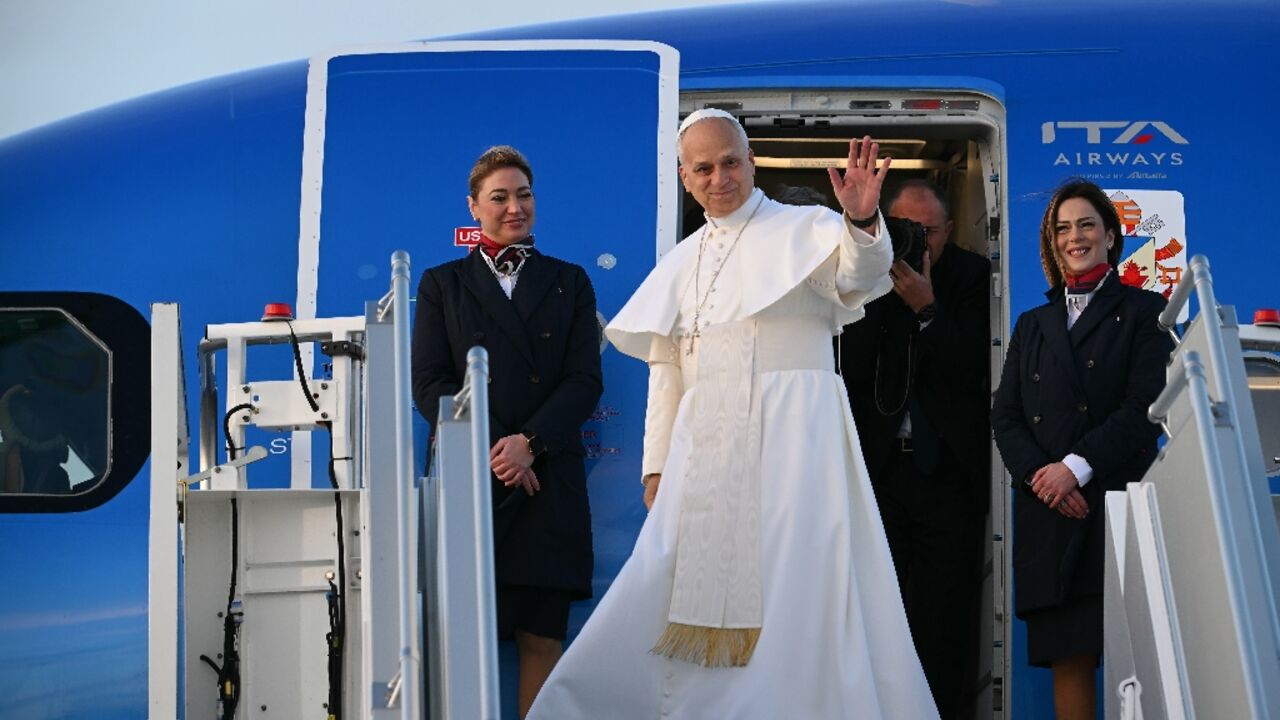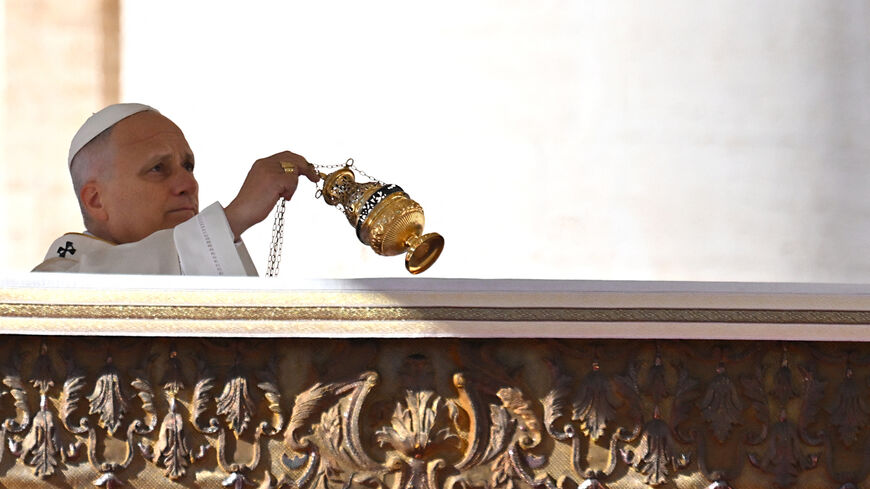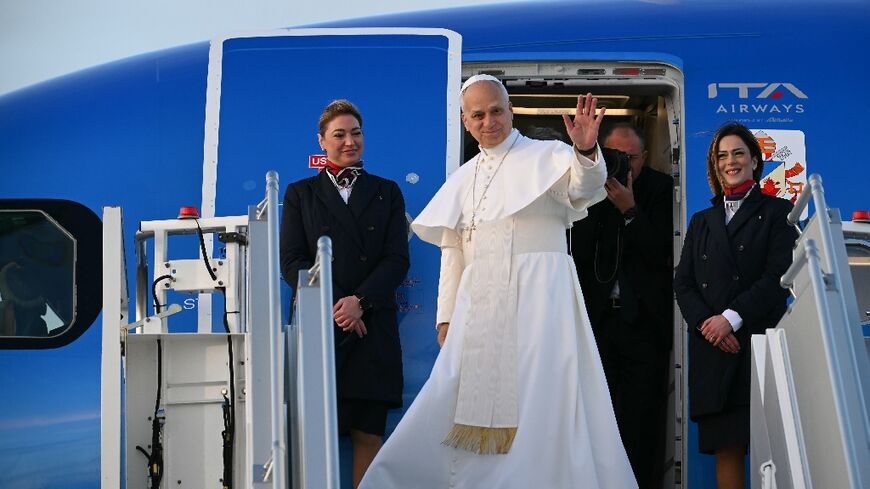Pope Leo lands in Turkey on first foreign visit
On his inaugural foreign visit to Turkey, Pope Leo will begin his tour with a meeting with the Turkish president.

ANKARA — Pope Leo XIV has arrived in Ankara for his first overseas trip since assuming the papacy in May, visiting a volatile region to bring a message of peace and dialogue, the central pillars of his papacy.
Details: The 68-year-old pontiff was greeted at an Ankara airport by senior Turkish officials on Thursday before heading to the Presidential Complex for a meeting with Turkish President Recep Tayyip Erdogan, who welcomed the pope at an official ceremony ahead of talks. The two leaders are scheduled to hold a joint press conference following their meeting.
The four-day visit to Turkey will also take the pope to Istanbul and Turkey’s northwestern town of Iznik. On Friday, in Iznik, the ancient site of Nicaea, he is scheduled to attend a commemoration marking the 1,700th anniversary of the First Council of Nicaea, a landmark gathering where early Christian leaders agreed on the fundamental doctrines of the faith.
His last stop will be Istanbul, where he is scheduled to attend an ecumenical prayer service with Ecumenical Patriarch Bartholomew I, the spiritual leader of some 300 million Orthodox Christians worldwide. Turkey does not recognize the patriarch’s ecumenical status, maintaining that he serves only as head of Turkey’s Greek Orthodox community, in line with the 1923 Treaty of Lausanne, the founding agreement of the modern Turkish Republic. Turkey argues that recognition of ecumenical authority would infringe on its sovereignty.
Pope Leo's schedule also includes interfaith meetings with Muslim leaders, gatherings with local church leaders and Christian communities in Istanbul. He will also lead a Holy Mass before leaving for Lebanon on Sunday for the second leg of his tour.
In a social media post ahead of his tour on Wednesday, Pope Leo said the trip would also allow him to meet with Catholic, Christian and other religious communities. “Our Christian brothers and sisters, and members of other religions. I ask you to accompany me with your prayers,” he wrote on X.
Tomorrow I travel to #Türkiye and then to #Lebanon to visit the dear peoples of those countries, which are rich in history and spirituality. It will be an occasion to commemorate the 1,700th anniversary of the #CouncilOfNicaea and to encounter the Catholic community, our…
— Pope Leo XIV (@Pontifex) November 26, 2025
Why it matters: The pope’s decision to pay his first foreign visit to the region, despite ongoing Israeli strikes in Lebanon and broader instability, highlights his commitment to peace and dialogue, echoing the call he made in his inaugural speech. “Help us to build bridges through dialogue, through encounter, so that we may all be united as one people, always in peace,” Pope Leo said in May.
Before his death, Pope Francis maintained frequent contact with a Gaza parish during the Israel-Hamas war through Gaza’s only Catholic church. After Israeli strikes on the church in July that killed three people, Pope Leo expressed “deep sadness,” calling for an immediate ceasefire.
Pope Leo's trip will mark the fifth papal visit to Turkey. His predecessor, Pope Francis, had planned a visit to Iznik in May 2024, but the trip was cancelled due to his deteriorating health. After becoming pontiff, Pope Leo decided to carry the plan forward.
Relations between Pope Francis and Ankara had been strained after the Turkish government converted Hagia Sophia — a sixth-century Byzantine cathedral later turned into a museum following the founding of the modern secular Turkish Republic — back into a mosque in 2020.
“My thoughts go to Istanbul. I think of Santa Sophia, and I am very pained,” the late pontiff said at the time.
Pope Leo’s official schedule does not include a visit to Hagia Sophia, unlike that of his predecessors. Instead, he will visit Istanbul’s Blue Mosque.
Know more: Ahead of the two-country tour, the Vatican said earlier this month that all necessary security precautions have been put in place to ensure the pope’s safety in both nations.
Turkey has remained particularly vigilant during papal visits ever since Mehmet Ali Agca, a Turkish far-right militant, shot and wounded Pope John Paul II in 1981.
This is a developing story and will be updated.



